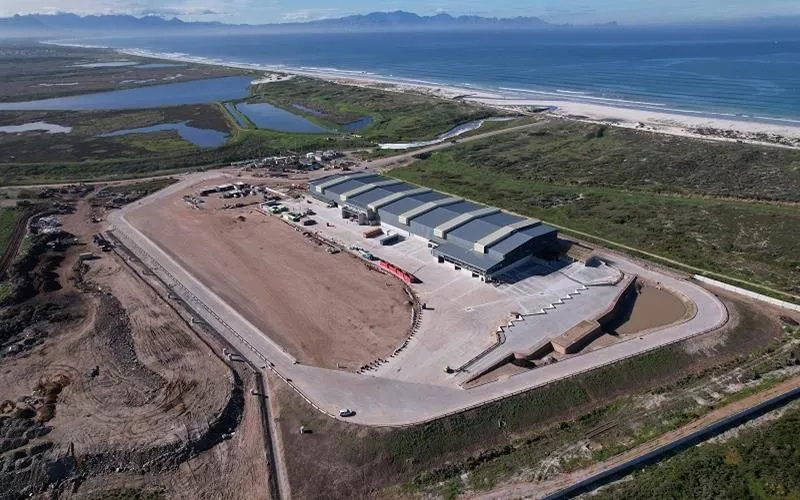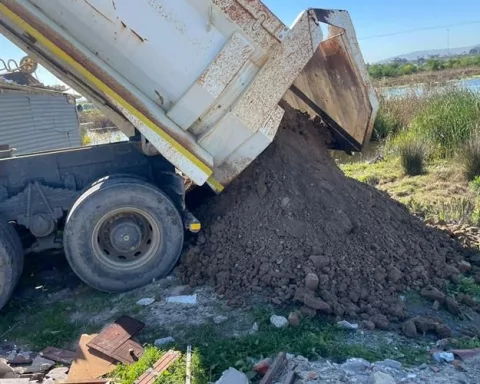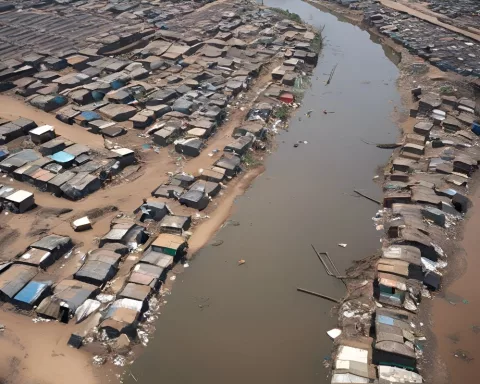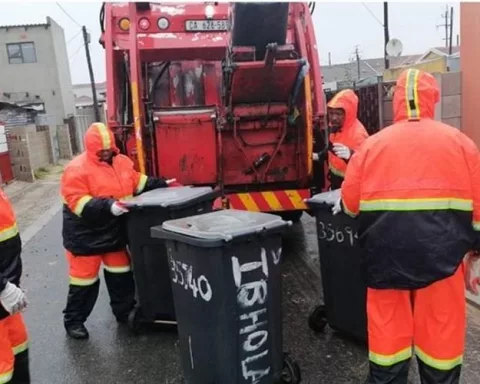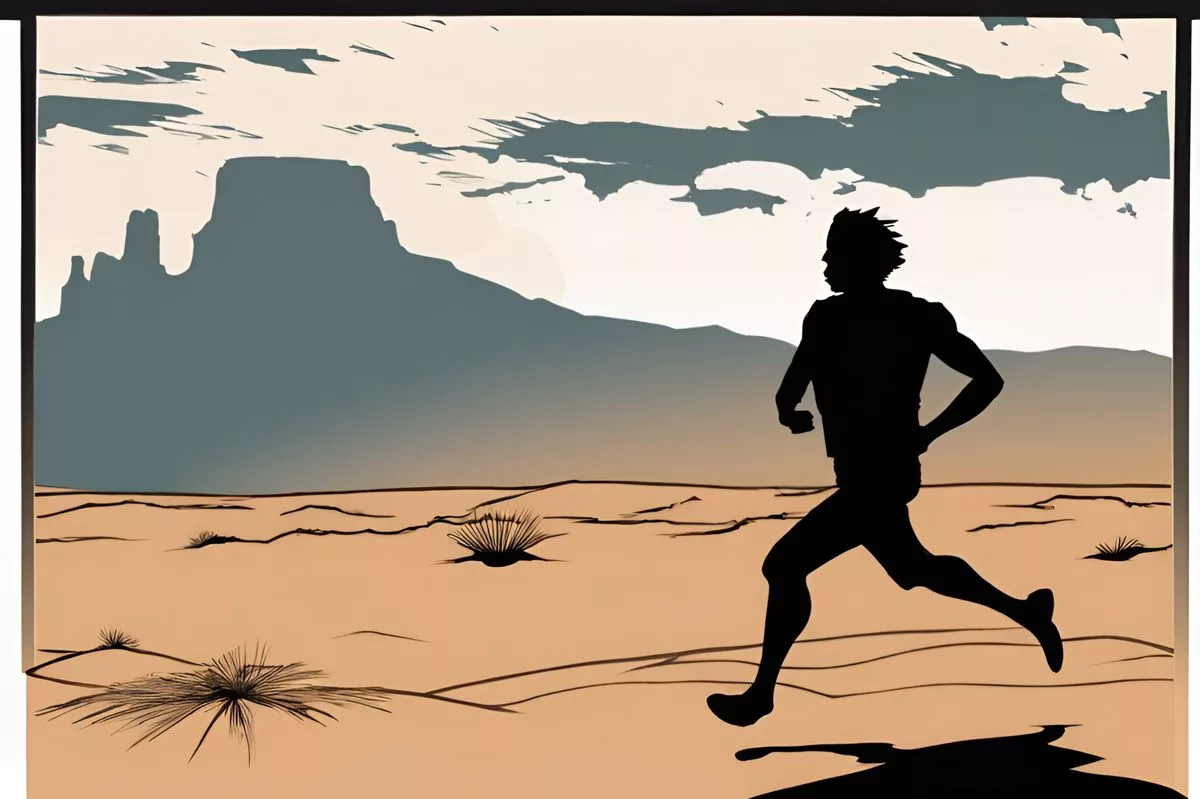The City’s Urban Waste Management Directorate has unveiled its budget plan for 2024/25, which prioritizes the improvement of sanitation and waste collection services, waste reduction capacity, and compliance with safety regulations. The budget includes significant allocations for refurbishing facilities, small-scale enhancements, and capital expenditure, funding a range of innovative projects and sustainable practices. The Directorate encourages public participation and feedback on the proposed initiatives, which will shape a more eco-friendly and efficient future for the City.
What is the City’s 2024/25 Urban Waste Management Budget?
The City’s Urban Waste Management Directorate has presented its budget blueprint for 2024/25, with key priorities including enhancing sanitation and waste collection services, increasing waste reduction capacity, and complying with health and safety regulations. Major allocations include R180 million for refurbishing facilities and replacing old vehicles, R50 million for small-scale enhancements, and R301 million for capital expenditure. The Directorate also encourages citizens to engage with the budget proposal and voice their opinions.
As the dawn of a new fiscal year is upon us, the Urban Waste Management Directorate of the City is proud to present its progressive and ingenious budget blueprint for 2024/25. This inspiring game plan lays out the crucial priorities, including enhancing the reliability of sanitation and waste collection services via the procurement of new machinery and facilities, in addition to increasing waste reduction capacity.
Major Allocations to Boost Efficiency
The Directorate is committed to realizing its objectives by assigning considerable funds to vital capital ventures. Key among these allocations is a provision of R180 million earmarked for refurbishing facilities and replacing old vehicles, to ensure a more effective waste collection process. Moreover, an extra R9 million is allocated for the development of a cutting-edge mechanical biological treatment plant and material recovery facility at the Athlone Refuse Transfer Station.
Minor Upgrades and Safety Measures
A significant facet of the budget plan is the allocation of R50 million for various small-scale enhancements at facilities. These enhancements encompass civil engineering works, building refurbishments, electrical installations, and safety fencing. This is consistent with the Directorate’s dedication to comply with health and safety regulations, as well as to minimize potential service interruptions.
Major Capital Projects in the Pipeline
The proposed capital budget comprises an assortment of major capital undertakings, each set to kick off in the 2024/25 fiscal year. These initiatives bear testament to the Directorate’s foresight in addressing waste management challenges and its commitment to embracing eco-friendly practices.
Innovative Projects and Sustainable Practices
An example of these initiatives is the design and development of a Material Recovery Facility at Coastal Park landfill. The facility will segregate recyclables, echoing the Directorate’s commitment to encourage recycling. This project is set to receive an initial funding of R500,000 in the upcoming fiscal year.
Meanwhile, the Directorate intends to channel funds into the landfill gas infrastructure at both Coastal Park and Vissershok landfills. The aim is to transition landfill gas into electricity, a novel waste management strategy that also taps into renewable energy. This project is set to be funded with R15 million distributed over the next three fiscal years, starting with an initial investment of R5 million in 2024/25.
Moreover, the Directorate has planned the construction of a satellite workshop at Vissershok landfill. This initiative will boost vehicle availability, thereby improving the consistency of waste collection services. This project will be realized over the next three fiscal years, with an initial investment of R645,000 in 2024/25.
Array of Upcoming Projects and Investments
The Directorate plans to invest in numerous other projects, such as upgrading existing facilities, providing additional landfill space, refurbishing waste management facilities, and replacing shipping containers. In total, the proposed capital expenditure for the Directorate for the fiscal year 2024/25 amounts to an impressive R301 million.
Moreover, R252 million has been allocated for area cleaning and door-to-door waste collection services seven days a week. In the three-year plan, several other capital expenditures have been put forward, including a significant R300 million towards vehicle replacement.
Tariff Changes and Public Participation
As the fiscal year 2024/25 nears, the Directorate is also rolling out an average increase in the consumptive tariffs for Refuse Collection and Disposal. Residents and waste services providers should prepare for an increase of 5.7% and 7.24% for these services, respectively.
The Directorate encourages citizens to engage with the City’s budget proposal and voice their opinions. Alderman Grant Twigg, Mayoral Committee Member for Urban Waste Management, extends an invitation for comments on the proposed infrastructure investments, cleansing initiatives, waste services, projects aimed at enhancing recycling accessibility, and proposed programmes offering employment opportunities.
Residents have the opportunity to review the tabled budget on the City’s official website and provide their written feedback via email or through their Ward Councillor/Subcouncil offices. Those who wish to offer verbal inputs can do so via the provided phone number.
As we edge closer to the final opportunity to comment on the Urban Waste Management’s preliminary 2024/25 budget, it is important to remember that active participation can help mold a more sustainable and cleaner future for the City.
What are the priorities of the City’s 2024/25 Urban Waste Management Budget?
The priorities of the City’s 2024/25 Urban Waste Management Budget include improving sanitation and waste collection services, increasing waste reduction capacity, and complying with health and safety regulations.
What are the major allocations in the budget?
There are significant allocations for refurbishing facilities and replacing old vehicles, small-scale enhancements, and capital expenditure. The budget includes R180 million for refurbishing facilities and replacing old vehicles, R50 million for small-scale enhancements, and R301 million for capital expenditure.
What are some of the innovative projects and sustainable practices proposed in the budget?
The budget proposes a material recovery facility at Coastal Park landfill, landfill gas infrastructure at Coastal Park and Vissershok landfills, and a satellite workshop at Vissershok landfill. These initiatives aim to encourage recycling, transition landfill gas into electricity, and boost vehicle availability to improve waste collection services.
What other projects and investments are planned in the budget?
The Directorate plans to invest in numerous other projects, such as upgrading existing facilities, providing additional landfill space, refurbishing waste management facilities, and replacing shipping containers. There is also an allocation of R252 million for area cleaning and door-to-door waste collection services, and R300 million towards vehicle replacement in the three-year plan.
What tariff changes can be expected with the budget?
Residents and waste services providers can prepare for an average increase of 5.7% and 7.24% for Refuse Collection and Disposal services, respectively.
How can citizens provide feedback on the budget proposal?
Residents can review the tabled budget on the City’s official website and provide their written feedback via email or through their Ward Councillor/Subcouncil offices. Verbal inputs can also be provided via the provided phone number. The Directorate encourages citizens to engage with the City’s budget proposal and voice their opinions on proposed infrastructure investments, cleansing initiatives, waste services, projects aimed at enhancing recycling accessibility, and proposed programmes offering employment opportunities.

